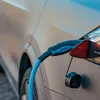Budget 2022: Charting out a roadmap for green energy and clean mobility
The government has played an integral role in driving EV adoption in India with several policies to promote sustainability and create an EV-conducive environment while reducing pollution and fuel import costs.
The recent years have seen a drastic shift in consumer mindset. With global warming and climate change significantly affecting the planet and our health and wellbeing, people are looking to adopt a more sustainable way of living. And transportation is one of the major causes of pollution, given that nearly all vehicles were built as ICE (Internal Combustion Engine) models.
Well, until recently, that is. Today, with growing consciousness among consumers and their preference for sustainable modes of transport, it’s no surprise that EVs (Electric Vehicles) have come to the limelight.
Although the EV market in India is still in the nascent stage, it is gaining steady traction as an increasing number of consumers take the EV route. But this wouldn’t be entirely possible without government support, would it?
The government has played an integral role in driving EV adoption in the country with several policies to promote sustainability and create an EV-conducive environment while reducing pollution and fuel import costs.
The Indian Electric Vehicle Market, valued at $5 billion in 2020, is predicted to grow to $47 billion by 2026, with a CAGR of over 44 percent.
However, despite EVs rapidly gaining popularity, the segment is still faced with a slew of challenges such as range anxiety and a lack of robust charging infrastructure. According to a Grant Thornton-Bharat-Ficci estimate, India will need 4 lakh charging stations by 2026 to meet the demand generated by the 20 lakh electric vehicles on the road.
So, as the Union Budget 2022-2023 approached, all eyes were naturally on Finance Minister Nirmala Sitharaman to observe the policies announced to assist EV players in driving EV adoption in the country. And we can safely say that the expectations have been met.
Budget 2022 reflects a substantial step in strengthening India's growth story. This year's budget placed a considerable focus on almost all industries, with a special mention of EVs to further bolster the adoption of electric vehicles in India.
So, what is in store for EV players?
Announcement of battery swapping policy
The battery swapping policy is one of the significant announcements made by Finance Minister Nirmala Sitharaman in Union Budget 2022. The announcement was made to urge automakers, who have so far been hesitant to adopt the battery swapping arrangement, to improve EV penetration.
EV owners perceive battery swapping technology as a convenient way to recharge their vehicles, thereby minimising the range anxiety. The technology will allow the owner to disconnect the battery from the car and charge it from afar.
This move will offer a plethora of opportunities for businesses to enter the EV battery market, boosting the country's EV and energy industries' growth and development. It will also facilitate the growth of battery or energy as a service and improve efficiency in the EV ecosystem.
Development of special mobility zones
Taking into account the need for EV-only zones to foster the growth of the segment, the Finance Minister announced that the government would develop specific mobility zones for electric vehicles. These mobility zones will be free of fossil fuel-powered vehicles and will play a critical role in accelerating the adoption of EVs and raising public awareness.
Introduction of EVs in public transport
Finance Minister Nirmala Sitharaman stated that the government would promote clean energy and electric vehicles in public transportation. This will benefit electric bus and commercial vehicle manufacturers much more. The supply chain partners of those organisations will also benefit from this initiative.
Overall, this budget is undeniably a forward-thinking and well-balanced one, especially for India’s EV ecosystem.
It will aid in reducing range anxiety while also enabling cost-effective and environmentally-friendly mobility on a large scale. If implemented effectively at a large scale, there will be no stopping the country’s EV segment from becoming one of the best in the world.
Edited by Teja Lele
(Disclaimer: The views and opinions expressed in this article are those of the author and do not necessarily reflect the views of YourStory.)







